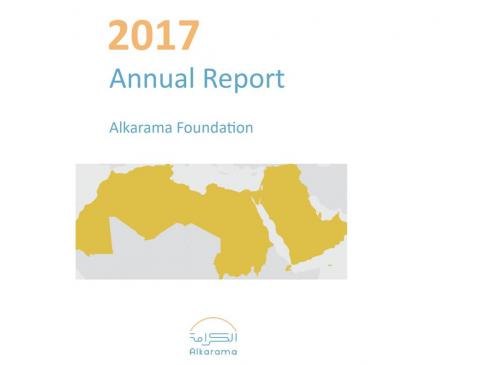
“Over the course of 2017, the Arab region has once again been the scene of the most serious human rights violations. While there are still no credible peace processes underway in the countries with open armed conflicts such as Iraq, Libya, Syria and Yemen, most other countries in the region are, to varying degrees, witnessing rising tensions with their neighbours. Coupled with foreign military intervention, this situation has wreaked havoc on the safeguard of the most fundamental human rights across the region.”
Foreword by Alkarama’s Board of Trustees, Annual Report 2017
On March 29, 2018, Alkarama launched its 2017 annual report, highlighting the most pressing human rights concerns in each of the Arab world’s 20 countries in the context of key political and legislative developments over the course of the year.
In 2017, Alkarama provided legal assistance to 516 victims of enforced disappearances, torture, arbitrary detention and extrajudicial executions, and submitted 12 reports to the UN Treaty Bodies and Human Rights Council. Among the most serious patterns of human rights violations observed over the course of the year were states placing further restrictions on the rights to freedom of expression, association and peaceful assembly, including through the use of repressive legislation and judicial harassment.
In many cases, such restrictions were justified in the name of counter-terrorism measures, widely used by states in the region as a pretext to silence peaceful dissenting voices and to violate the most fundamental human rights of their citizens. In 2017, human rights abuses committed under the pretext of the fight against terrorism continued to sweep across the Arab region, a pattern echoed in the reports of numerous UN Treaty Bodies and Special Procedures following official country visits and reviews.
Finally, as in previous years, in 2017, Alkarama observed a trend across the Arab world of systematic acts of reprisals against human rights defenders, including those who cooperate with the United Nations human rights mechanisms. This trend was reflected in the 2017 report of the UN Secretary-General on the subject of reprisals against persons who cooperated with the UN. The report names 29 countries where individuals have been subjected to reprisals – including asset freezes, travel bans, arbitrary arrests, enforced disappearances and torture – for having cooperated with the UN human rights mechanisms. The Middle East and North Africa region accounts for a third of the total countries named; Algeria, Bahrain, Egypt, Israel, Mauritania, Morocco, Oman, Saudi Arabia, Sudan and the United Arab Emirates were all included in the report.
As noted by Alkarama’s Board of Trustees in the report’s foreword, while human rights violations in the Arab world have escalated in recent years, “most Western states seem to turn a blind eye to ongoing human rights violations as a result of either the rise of populism or geostrategic considerations.” In this context, “the action of organisations like Alkarama, which envision an Arab world where all individuals can live dignified lives, free from injustice, is vital.” As Alkarama has been targeted by smear campaigns and acts of reprisals over the course of 2017, we have become more determined than ever before to continue providing pro bono legal assistance to victims of the most serious human rights violations, without discrimination.
For more information or an interview, please contact media@alkarama.org (Dir: +41 22 734 1006).
